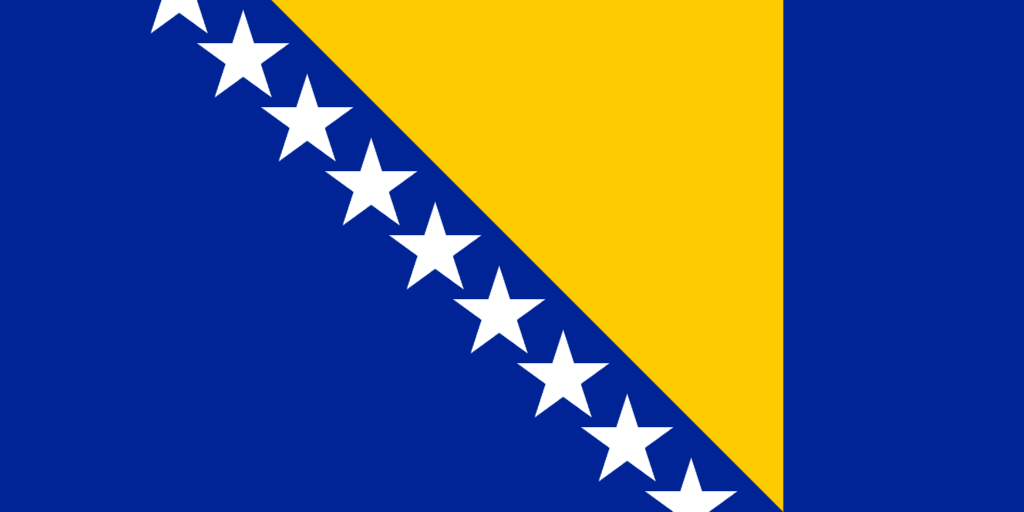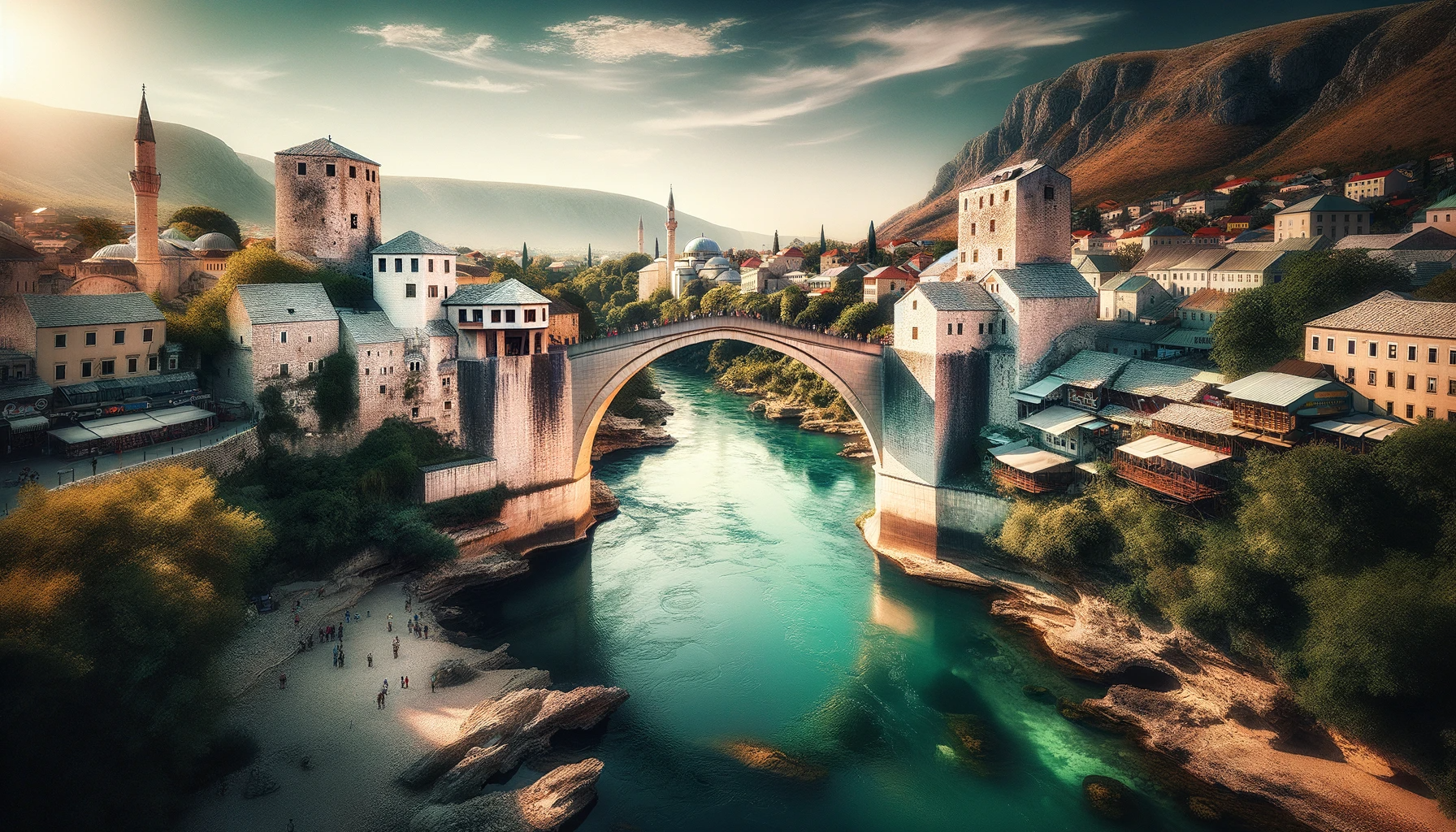Bosnia and Herzegovina is a country with a rich and complex history, diverse cultural heritage, and natural beauty. It continues to navigate its post-war recovery and development, striving for a harmonious and prosperous future.
List of National Public Holidays in Bosnia and Herzegowina 2025
- New Year’s Day is on Wednesday, January 1st (National)
- New Year Holiday is on Thursday, January 2nd (National)
- Orthodox Christmas Eve is on Monday, January 6th (Republika Srpska)
- Orthodox Christmas Day is on Tuesday, January 7th (Republika Srpska)
- Republic Day is on Thursday, January 9th (Republika Srpska)
- Orthodox New Year is on Tuesday, January 14th (Republika Srpska)
- Independence Day is on Saturday, March 1st (Bosnian Federation)
- Ramadan Bajram is on Sunday, March 30th (Bosnian Federation)
- Orthodox Good Friday is on Friday, April 18th (Republika Srpska)
- Catholic Easter Sunday is on Sunday, April 20th (Bosnian Federation)
- Orthodox Easter Sunday is on Sunday, April 20th (Republika Srpska)
- Catholic Easter Monday is on Monday, April 21st (Bosnian Federation)
- Orthodox Easter Monday is on Monday, April 21st (Republika Srpska)
- Labour Day is on Thursday, May 1st (National)
- Labour Day Holiday is on Friday, May 2nd (National)
- Victory Day is on Friday, May 9th (Republika Srpska)
- Kurban Bajram is on Friday, June 6th (Bosnian Federation)
- St. Vitus Day is on Saturday, June 28th (Republika Srpska)
- All Saints’ Day is on Saturday, November 1st (Bosnian Federation)
- Dayton Agreement Day is on Friday, November 21st (Republika Srpska)
- Statehood Day is on Tuesday, November 25th (Bosnian Federation)
- Catholic Christmas Day is on Thursday, December 25th (Bosnian Federation)

History
- Early History: Bosnia and Herzegovina has been inhabited since the Neolithic age. It later became part of the Roman Empire and subsequently the Byzantine Empire.
- Medieval Kingdom: Emerged as an independent medieval kingdom in the 12th century, known for its religious diversity.
- Ottoman and Austro-Hungarian Rule: Fell under Ottoman rule in the 15th century, which introduced Islam. Later became part of the Austro-Hungarian Empire in the 19th century.
- Yugoslavia and Independence: Became part of the Kingdom of Yugoslavia in 1918 and then the Socialist Federal Republic of Yugoslavia after World War II. Declared independence in 1992, followed by a devastating war until 1995.
Geography
- Location: Located in Southeastern Europe on the Balkan Peninsula, bordered by Croatia, Serbia, and Montenegro.
- Terrain: Characterized by mountainous terrain in the central and eastern regions, and a small Adriatic Sea coastline.
- Rivers and Natural Beauty: Home to major rivers like the Neretva and Sava, and natural landscapes like the Dinaric Alps.
Culture
- Rich Cultural Heritage: A blend of Eastern and Western influences, reflecting its diverse religious and ethnic composition – Bosniaks, Serbs, and Croats.
- Traditions and Arts: Known for its traditional music, folklore, and handicrafts like copperwork and weaving.
- Cuisine: A fusion of Ottoman, Mediterranean, and Balkan culinary traditions, featuring dishes like ćevapi, burek, and Bosnian coffee.
Economy
- Post-War Recovery: The economy has been recovering from the 1990s war, with ongoing challenges in transition to a market economy.
- Key Sectors: Main economic sectors include manufacturing, mining, and agriculture, with a growing emphasis on tourism.
Society
- Demographic Composition: Diverse ethnic and religious composition, with Bosniaks (mostly Muslim), Serbs (mostly Orthodox Christian), and Croats (mostly Catholic).
- Urban and Rural Life: Urban centers like Sarajevo and Mostar offer a mix of historic and modern lifestyles, while rural areas preserve traditional ways of life.
Environment
- Natural Landscapes: Rich in natural landscapes, including mountains, rivers, and forests, which offer opportunities for outdoor activities and tourism.
- Environmental Challenges: Facing challenges in environmental protection and sustainable development.
Arts and Literature
- Literary Tradition: Rich literary heritage with influences from its diverse cultures, including works by Nobel laureate Ivo Andrić.
- Contemporary Arts: Growing contemporary arts scene, with film, music, and visual arts reflecting the country’s complex history and cultural diversity.
Sports
- Popular Sports: Football is the most popular sport. Other sports include basketball, volleyball, and winter sports in the mountainous regions.
Challenges and Future Outlook
- Economic Development: Ongoing efforts to improve the economy and infrastructure, attract foreign investment, and reduce unemployment.
- Social Cohesion: Working towards social cohesion and reconciliation following the ethnic conflicts of the 1990s.
- European Integration: Aspirations for integration into the European Union, with ongoing reforms and negotiations.

